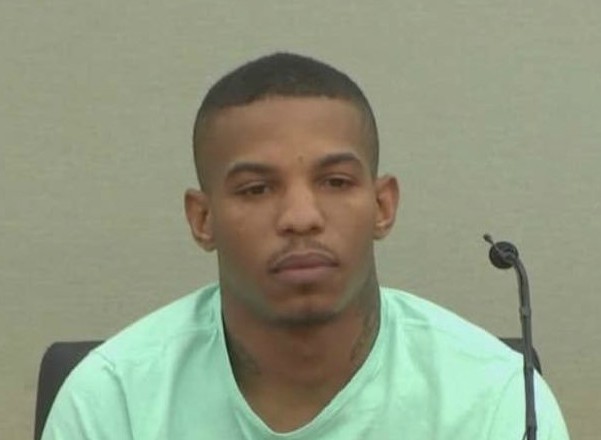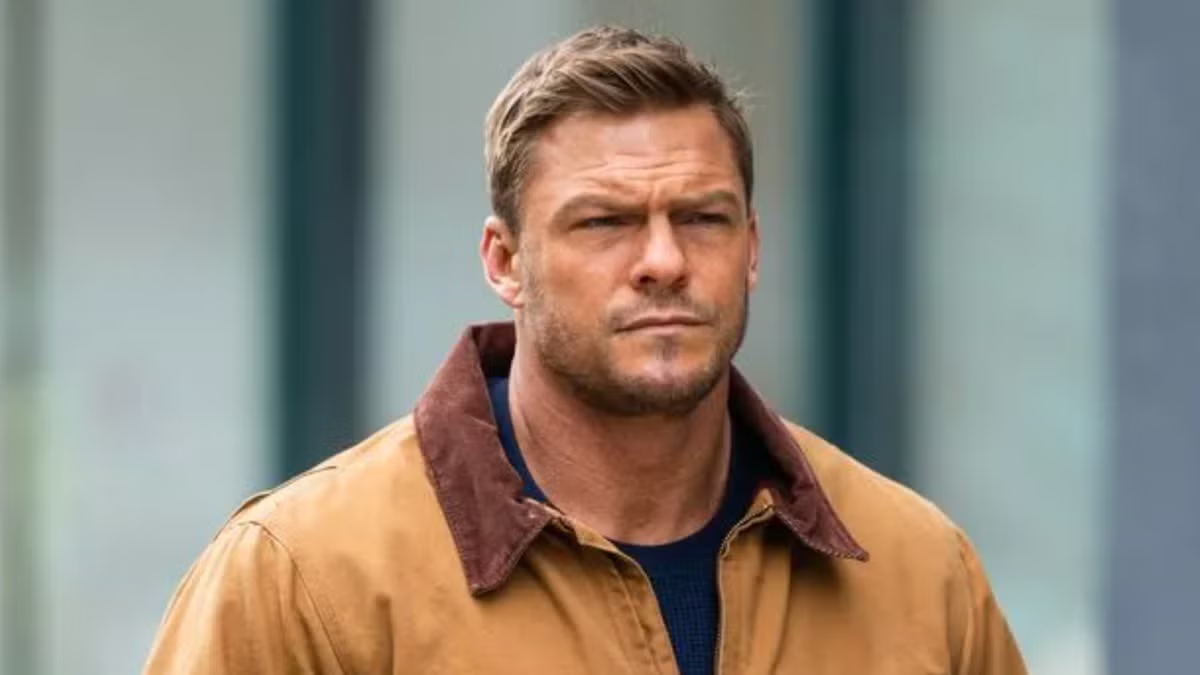[“Speaking Truth To Empower\Racial Policing”]
Botham Jean’s lawyer Lee Merritt: Joshua “Brown lived in constant fear that he could be the next victim of gun violence, either state-sanctioned or otherwise.”
Photo: Twitter
Joshua Brown worried about being “victim of gun violence, either state-sanctioned or otherwise.”
Friday’s suspicious murder of Joshua Brown must be fully investigated by independent authorities—regardless of the Dallas police’s recent allegations that his killing was supposedly drug-related.
Given the Dallas police’s lack of credibility, we cannot just accept their story at face value.
Mr. Brown, a key witness in the trial of former officer Amber Guyger, was killed two days after Guyger was given a ten-year sentence for killing Botham Jean on September 6th, 2018. Brown’s testimony was instrumental in exposing lies Guyger told regarding why she shot Mr. Jean to death, inside his own home.
Because of the corrupt manner in which the Dallas police conducted themselves during the “investigation” into Officer Guyger’s deadly actions, many have understandably come to the conclusion that the execution of Mr. Brown was connected to his trial testimony against Guyger.
Tuesday, the Dallas police said they have now identified those who they allege are the real killers of Mr. Brown. They say Mr. Brown was the victim of a drug deal gone bad, involving three men.
Unfortunately, because of the constant coverups and lies that too many police departments engage in when their trigger-happy officers kill Black people, Brown’s killing must be independently investigated.
At a news conference on Tuesday, Assistant Chief Avery Moore of the Dallas Police Department announced they have identified Thaddeous Charles Green, 22, Michael Diaz Mitchell, 32, and Jacquerious Mitchell, 20—all from Louisiana—who they claim murdered Brown. Supposedly, Brown was killed because of a disagreement over a marijuana deal. Chief Moore alleges Jacquerious Mitchell confessed that the drug deal went down Friday in the parking lot of the Atera apartments, approximately six miles from where Guyger murdered Botham Jean.
Chief Moore alleges that the killers “drove to the offense location, Thaddeous Green gets out of the vehicle, has a conversation with Joshua Brown, which escalates to physical altercations, at which time Jaquarious Mitchell gets out of the vehicle and he states that Joshua Brown orders him back into the vehicle and shoots him in the chest.” Moore tells us “He says [Jaquarious Mitchell] Thaddeous Green shot Joshua Brown two times.” Reportedly, Mitchell was taken to the Promise Hospital in Dallas.
This story is indeed a questionable one.
First of all, why would these men drive four hours from Louisiana to Dallas just to buy marijuana? There are no local dealers they could buy from? The only reason anyone would drive that distance would be to buy major amounts for a good price. But who would conduct such a large sale in the open parking lot—of an apartment complex—especially, since the buyers would most likely want to weigh the product on a scale?
Another thing we would have to believe is Brown, as a drug dealer, would risk testifying against a police officer—in a major murder trial. The police are basically telling us Brown was smart enough to conceal his drug-dealing activities from them, while they were no doubt doing everything to discredit him as a credible witness against Guyger.
But if Brown was such a smart drug-dealer why did he get killed in such a dumb way?
Why did he jeopardize his life by not opening fire on both Green and Mitchell, or all three for that matter? Why did he limit it just to Mitchell, especially when we’re being told the physical altercation started with Green? He shoots Mitchell but not Green, who then is able to shoot him to death?
There is another weird thing here as well. According to Chief Moore, the killers allegedly took Brown’s gun before they fled the crime scene. Why was it so important to take Brown’s gun before escaping after murdering him? In fact, wouldn’t leaving the gun at the scene help bolster the claim that he was shot in self-defense, in the event of their capture? If it was so the gun couldn’t be traced back to the bullets inside Mitchell’s body, then where is that gun now?
Of course, this oddity quite conveniently explains why no gun was found next to Brown’s dead body.
Chief Moore said “numerous tips” led them to execute a search warrant of Brown’s home where they claim they found 12 pounds of marijuana, 143 grams of THC cartridges and $4,000 cash. Again, because the police have destroyed their own credibility over the years, with their dishonesty and lack of transparency, we must seriously scrutinize their statements. Isn’t it also interesting they found no other guns during this search?
Too many police are caught lying on a regular basis.
A recent Oct. 7th New York City news story, in the Gothamist, entitled “Bronx Prosecutors Release Secret Records On Dishonest Cops,” highlights but one example of this. The documents were released due to pressure from a Freedom of Information request by WNYC.
The story quotes Christopher Dunn, legal director of the New York Civil Liberties Union, as saying, “This revelation suggests there may be large numbers of police officers that prosecutors know are not reliable. This is exactly the type of information the public must know about. If they don’t, it just calls our entire system into doubt.” The story also highlighted a case that was thrown out of court because as Judge Colleen McMahon, the chief judge in the Southern District, bluntly said, “I believe that the officers lied under oath on the stand when they said that they smelled marijuana and that that is what occasioned the search of the car.”
The use of marijuana has long been used as a justification when police want to conduct searches against Black people—or when they want to criminalize the character of a victim of police abuse.
Chief Moore, and the Dallas Police are obviously upset that many people believe Brown’s death is connected to his testimony that helped convict Guyger. During his press conference, Chief Moore stated, “I assure you that is simply not true. I encourage those leaders to be mindful of their actions moving forward because their words have jeopardized the integrity of the city of Dallas as well as the Dallas police department.”
Chief Moore needs to be told it is not the words of these leaders that jeopardize the Dallas police—but the dishonesty of the police in lying and covering-up for officers who commit crimes and violate the public trust. If the police had been honest about Guyger’s reckless actions, in causing the death of Botham Jean, they wouldn’t have the credibility and public relations problem they have now. Instead of blaming others, the Dallas police need to take responsibility for the seeds of mistrust they have sown.
Those arguing the confession of Jacquerious Mitchell proves the police are telling the truth should be reminded of the forced false confessions in the Central Park Five case. They should also be informed about the terroristic tactics of former Chicago Detective Jon Burge—known for torturing and coercing “confessions” from Black arrestees.
Is it possible the Dallas police are telling the truth? Maybe. As Mark Twain famously said, “truth is stranger than fiction.”
One would like to give Dallas police the benefit of the doubt. Unfortunately, they have impeached their own credibility in the Botham Jean case.
Moreover, many police departments have a serious unaddressed problem with violent racism inside their ranks. The FBI itself has warned about the infiltration of covert racists—called “Ghost Skins”—into police departments, an alarming reality that gets no coverage in the so-called mainstream media.
Because of racial policing, Black America cannot just accept the word of police departments who coverup for their killer-cops. The NAACP has issued a call for an independent investigative body to look into who killed Joshua Brown. Sadly, many African-Americans worry about being murdered by police, this included Joshua Brown.
According to Botham Jean’s lawyer, Lee Merritt, Joshua “Brown lived in constant fear that he could be the next victim of gun violence, either state-sanctioned or otherwise.”


















